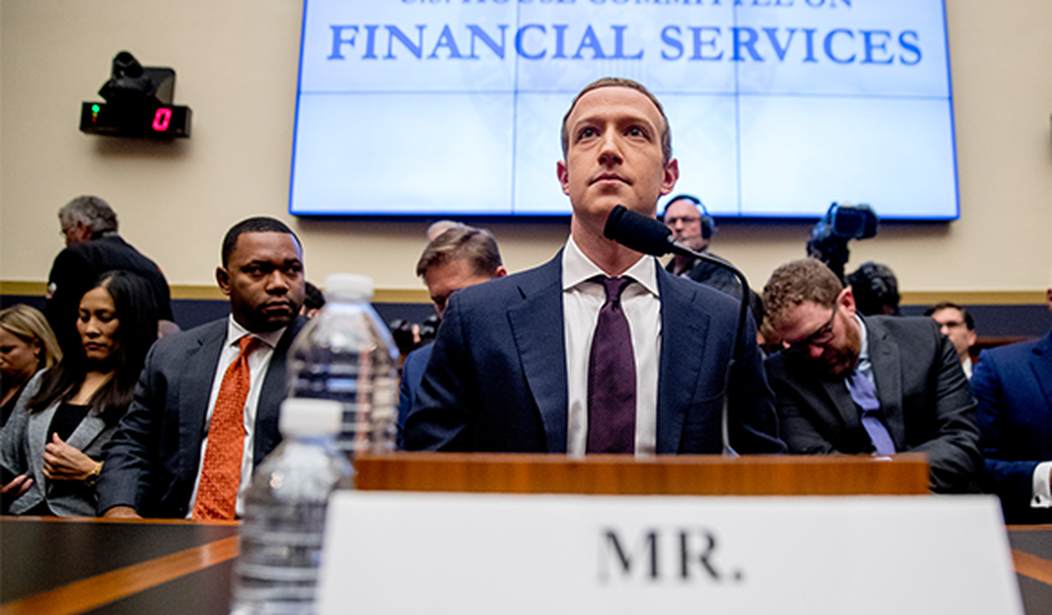If I had a nickel for every time some well-meaning reader, commenter, or friend suggested that PJ Media “just quit Facebook,” I’d have enough nickels to buy Mark Zuckerberg’s Hawaii estate.
I’d pay him with the nickels, too.
So, why does PJ Media still have a Facebook page, after all the financial and reputational damage we’ve suffered at the hands of the Mountain View data-hoovering giant?
Simple: The PJ page doesn’t matter.
And yet I’m told again and again that the company wouldn’t hurt us anymore if we just stopped using it.
Sadly, that sentiment is as far from the truth as Presidentish Joe Biden is from mental acuity after calling a lid at 3:12 in the afternoon.
I think the confusion stems from a lack of understanding about how Facebook works, how PJ Media “uses” it, and the control Facebook enjoys over nearly all web traffic, even stuff having zero to do with Facebook.
PJ Media isn’t “on” Facebook at all, per se, except for a corporate page where we post links to our latest news items and columns. It’s there for people to “Like” and get those links injected into their own Facebook timelines. That’s the end of our involvement with Facebook.
The links you see there — if you’re allowed to see them — direct to PJMedia.com, a site hosted by us on our own servers.
How then does Facebook hurt our traffic?
Facebook is home to two billion users from around the world, and an astonishing 71% of all Americans.
Facebook is the default place to go to find and share news for the overwhelming majority of those two billion human beings. In large part, that’s because the platform is free, but mostly because Facebook uses dodgy data-mining combined with an AI-type algorithm to keep people “engaged” on the platform for as many hours as day as they can wrangle.
Facebook is the nicotine of the web.
The fastest way for a PJ Media news story to go viral — that is, to reach many, many times more people than regular visitors to PJMedia.com — is for it to break big on Facebook.
Let’s see how that happens.
Somebody, maybe you, shares my latest Insanity Wrap column with their Facebook friends. Something about it “clicks” with your friends, who then share it with their friends. And they share it with their friends.
Suddenly, my daily column goes from having thousands and thousands of pageviews (and a resulting increase in ad dollars!) to having hundreds of thousands, or even more.
Mostly, though, Facebook sharing results in a “normal” number of page views. If we knew how to make something go viral on purpose, we’d all have a LOT more money.
People used to find and then bookmark their favorite sites, and maybe email stuff they really liked to a few friends. There’s been a sea change in the last decade over how people find things to read on the web. Since the rise — and domination — of social media sites, Facebook is where people go to find things to read, and then to share them with two billion other people at the simple click of a virtual button.
But what if Facebook decides not to show PJ Media content, even to people who have “Liked” our corporate page? What if Facebook decides not to show shared links, even when you just try to share them with your own friends? What if Facebook slaps a “Fake news” or red flag on today’s Insanity Wrap, warning people not to read it? Assuming, that is, they can even find it?
There’s no “What if?” about any of these questions. They are the reality for conservative content on Facebook.
The result, as I hope you understand after reading Paula Bolyard’s piece on Wednesday, has been to hurt our traffic, damage our reputation, and cost us dearly on the bottom line.
This hasn’t happened because PJ Media has a small presence on Facebook; It’s because two billion other people are.
The old, decentralized internet broke the power of gatekeepers like the New York Times. But the social media-ized internet has given rise to a new generation of gatekeepers, far more effective than the old ones.
The solution isn’t to build a better Facebook (or Twitter, or Instagram, or anything else).
The solution is to smash social media’s ability to throttle dissenting voices, and to open the internet back up to the free flow of information that once made it great.










